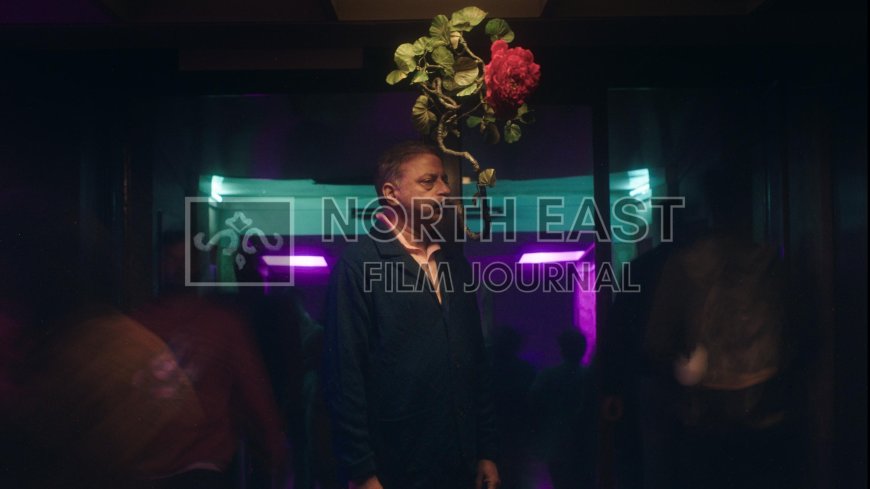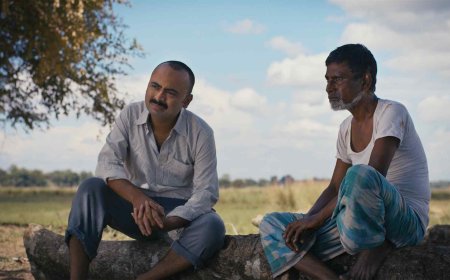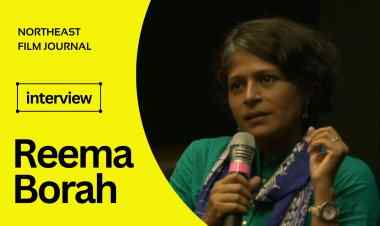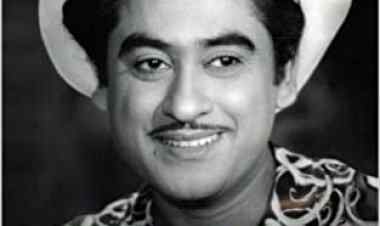An interview with ‘Flowering Man’ filmmaker Soumyajit Ghosh Dastidar
Dipankar Sarkar provides an interview with ‘Flowering Man’ filmmaker Soumyajit Ghosh Dastidar

Flowering Man, by Soumyajit Ghosh Dastidar, is a sensitive drama that explores the turmoil of a man who has long suppressed his queer identity. There's this flowering plant that grows inside his mouth, acting metaphorically to show the deep, wordless longing toward self-acceptance. Emotional depth intensifies, along with increasing longing for reconciliation, as his young daughter embarks on a journey of discovery toward her father.
Flowering Man won the special jury award at the 16th IDSFFK 2024.
In this interview, Dastidar talks about his unusual subject, his choice of music, and his future in filmmaking.
Why did you choose a career in filmmaking?
I always wanted to tell stories through the visual medium of cinema. I don't know where I would be had I not chosen filmmaking. Sometimes when I feel that every day is a struggle, the only hope that keeps me going is that I'm closer to doing something that I passionately love. Be it clicking photographs on film with my father's camera to the first digital photograph I had clicked on one of the earlier camera-attached cell phones. I was always trying to find a visual form to express myself. I took baby stepsᅳfor my undergraduate course, I enrolled in Mass Communication and Videography, from St. Xaviers College, Kolkata. and then for my post-graduation, I got into the Film and Television Institute of India. And those years at FTII nurtured me.
How did you come across the idea of the film?
The primary image of Flowering Man comes from childhood lore: during winter, when we ate oranges, we were told that if we swallowed the seed of the fruit, a plant would start growing inside our bodies. Somewhere the fear gave rise to the image of fantasy, and I often wondered how the plant would grow inside the body, rise through the oesophagus, and finally branch out from inside the mouth. Maybe someday it would have a flower blossom on it. One day, I remember doodling an image of it in my notebook, and that is what stayed back as part of a core memory. Years later, that is what came back to me, and I wanted to translate it into a moving image. As I always enjoy metaphors, the layer of understanding gender seemed to organically weave itself into the film.
Why did you narrate the story from the perspective of the man's daughter?
The representation of coming out is often depicted through younger characters, seemingly knowing their desires in a more defined manner. This being the case, I have always wondered what it would have been like for previous generations-most of whom had to subdue themselves into heteronormative society. Their struggles of reconciliation with their identity go so unreconciled. I also think a father-daughter dynamic is more complex than usually represented. Acceptance is difficult enough itself, but to accept a father as a woman from having always known him as a man requires inner turmoil.
How did you cast Tanishka Meesala in the role of the daughter?
The daughter's character is complex; it starts with fear, then moves to creating distance, then to being violent and finally arriving at acceptance. All of which is an emotionally turbulent experience. Tanishka's innocence makes the vulnerabilities of her character even more real. It has always been through small gestures and movements that I wanted to explore the daughter's journey and transformation. The daughter's name was Sanju on paper; we don't get to know her name in the film, but I had an image of her. It was difficult to articulate how the character should be because all I had in mind was my sister. While I had almost given up on finding the exact actor, one day Tanishka walked in to meet us, and I could immediately see her playing Sanju.
Why did you use an Assamese song in the film?
Most of the music I resonate with is melancholic and driven by nostalgia and timelessness. I remember coming across the song on the internet while I had just started editing the film. It haunted me to the extent that I might have listened to it on a loop for over 6 hours. I couldn't get it out of my mind. I don't understand Assamese that well, and that is exactly what stayed backᅳthe slight familiarity and the rest left to the imagination. It's almost like Wordsworth's Solitary Reaper, where he hears a song and feels an aching pain, but he doesn't know what it means. I used the same context in the film as well. I immediately reached out to the While We Wonder team, and they were kind enough to agree with me using the song for Flowering Man.
Would you continue to explore the world of filmmaking with abstract and experimental ideas?
The world of fantasy is quite alluring. Most of what I want to explore through the medium of cinema is to do with the unreal because I feel that desires are so queer sometimes that only fantasy can justify it. I like doing narratives, where layers organically weave together the film. It has never been about abstraction or experimentation, but rather about what form a film should have to do justice to the story while retaining a bit of myself in it. That, to me, is what keeps filmmaking most enjoyable.
*****
What's Your Reaction?

































































